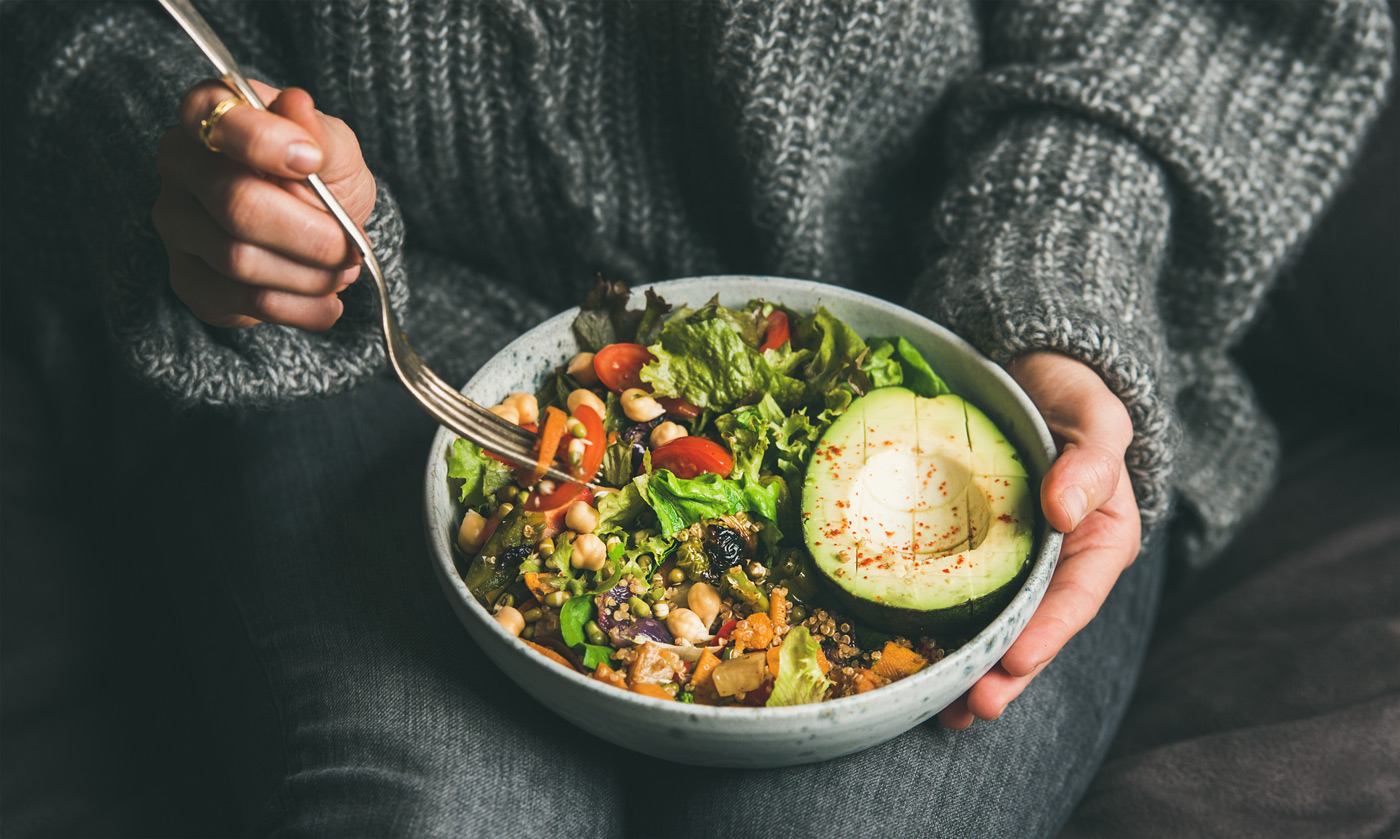It’s no secret that I am a big fan of plant-based foods to support a healthy and well-balanced diet.
I believe that any health diet must be rich in nutrient rich plant-based foods to support good metabolism, immunity and a health GI system.So, it might surprise you that I am also a proponent of adding lean and health meat and fish options to your diet to support long term health and nutritional balance.
Which is why when asked if I support a vegan diet, my answer is usually . . .”well, that depends.”
There’s no question that over the last years that interest in vegan diets has gained traction and more and more people are opting for meat free, fish free and dairy free menus. Being “vegan” is a very specific term that differs from being “vegetarian” which generally refers to someone who consumes a plant-based diet that also includes varying amounts of eggs and/or dairy products and sometimes fish.
Conversely, vegans consume a strictly plant-based diet and avoid all forms of dairy and fish. Which can lead to some benefits and some downsides – which is why my answer of whether a vegan diet is a healthy diet often depends on the individual.
Common Misconceptions about the Vegan Diet
Studies have shown that vegans might have lower total and LDL cholesterol levels. They may also have lower blood pressure and a leaner body mass index as compared to non-vegetarians. Vegans may be thinner and some studies have suggested that vegans have lower risk factors for cancer, type 2 diabetes and other illnesses – there are still questions whether the long-term studies will support those findings.
And when it comes to getting enough protein, there is a great misconception that vegans aren’t able to get the protein they need to function properly. The truth is that a well-planned vegan diet can support sufficient protein intake easily. Consuming vegetable protein from foods such as soy, nuts, seeds and legumes from a variety of sources throughout the day, can meet the protein requirements without need for supplement intake.
Others also claim that vegans can’t get enough Vitamin or calcium and therefore may struggle with brittle bones or even osteoporosis. And while dairy may be a key source of calcium for many, vegans have the ability to get sufficient calcium from such sources as certain nuts, broccoli and green leafy vegetables! Also, while many products are now fortified with calcium, I don’t often recommend these as they may not be in the proper form or allow the body to receive what it needs.
There is also this misconception that veganism might be a prevention cure-all for heart-disease, cancer and other chronic inflammatory diseases. It’s not. Although vegan diets are typically higher in dietary fiber, magnesium, folic acid, vitamins C and E, and tend to be lower in calories and saturated fats – it shouldn’t be mistaken for a solution just to avoid disease.
In fact, in some individual cases the lack of meat, fish, eggs and dairy might lead to conditions such as anemia, iron deficiency, low B12 and Omega-3s which can lead to brain fog, immune issues and other illness.
Like other elimination diets – anything that causes the body to be out of balance can cause some deficiencies and possible illness in parts of the body.
So, what do I recommend?
The truth is that if you’re exploring being a vegan, it is important to understand your body’s needs before you dive in. Your body may have certain nutritional needs that your best friend (who’s already a vegan) may not have.
You’ll want to have a complete consultation with a nutrition expert who can run tests and advise you on the proper vegan diet and supplements that can support your personal choices.
Being vegan requires additional planning.
And if you’re willing, eating a vegan diet can be healthy – but it may require advanced weekly preparation, a balance of different kinds of foods throughout the day (to ensure proper protein and nutrient intake), and even daily supplements to support possible deficiencies resulting from the elimination of meat and fish.
You may have to also monitor your body and ensure that you’re getting enough of what you need to sustain your health long-term.
Like any nutrition choice – knowing what your body needs is key. Being vegan shouldn’t be treated like a fad or quick-fix-weight-loss option because it might have repercussions that impact your health in real ways. Some may be incredibly beneficial. Others may cause more trouble if you’re already compromised in some way. So, it’s best to get a full understanding of what your body might need through testing which could include blood tests, genomic testing and other health assessments and intakes.
We have worked with plenty of vegans to help them find balance and long-term sustainable health and can help you too.
If you’re considering this option for you this year – consider scheduling a consultation and we can provide you with meal plans and options to help you ensure that you’re receiving the vitamins, minerals and nutrients that support your body!
In good health,
Meryl




